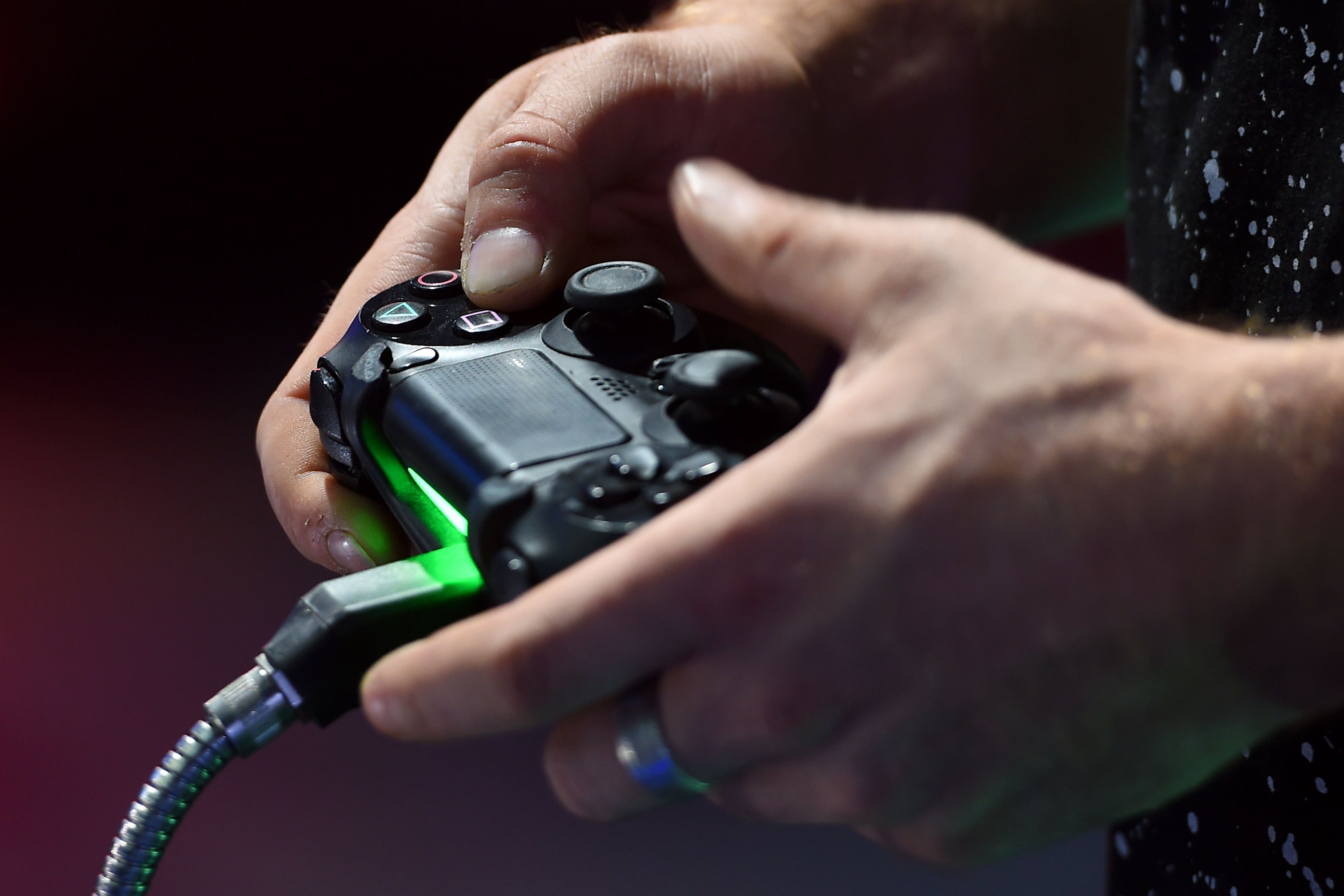Screen time linked to increased odds of preteens developing OCD – study
‘Parents should be aware of the potential risks’ of too much screen time to preteens, ‘especially to mental health’.

Your support helps us to tell the story
From reproductive rights to climate change to Big Tech, The Independent is on the ground when the story is developing. Whether it's investigating the financials of Elon Musk's pro-Trump PAC or producing our latest documentary, 'The A Word', which shines a light on the American women fighting for reproductive rights, we know how important it is to parse out the facts from the messaging.
At such a critical moment in US history, we need reporters on the ground. Your donation allows us to keep sending journalists to speak to both sides of the story.
The Independent is trusted by Americans across the entire political spectrum. And unlike many other quality news outlets, we choose not to lock Americans out of our reporting and analysis with paywalls. We believe quality journalism should be available to everyone, paid for by those who can afford it.
Your support makes all the difference.Preteens who spend too much time glued to their screens have higher odds of developing Obsessive Compulsive Disorder (OCD), a study has found.
Their odds of developing OCD over a two-year period increased by 13% for every hour they played video games and by 11% for every hour they watched videos.
This is according to a new study led by UC San Francisco (UCSF) researchers, published on Monday in the Journal of Adolescent Health.
The lead author of the study has warned parents excessive screen time can have a detrimental impact on preteens’ mental health.
“Children who spend excessive time playing video games report feeling the need to play more and more and being unable to stop despite trying,” said Jason Nagata, MD, assistant professor of paediatrics at UCSF.
“Intrusive thoughts about video game content could develop into obsessions or compulsions.”
He said watching videos can also make preteens want to compulsively view similar content.
Algorithms and advertisements can exacerbate that behaviour, he added.
OCD is a mental health condition involving recurrent and unwanted thoughts as well as repetitive behaviours a person feels driven to perform.
“Screen addictions are associated with compulsivity and loss of behavioural control, which are core symptoms of OCD,” Mr Nagata said.
Researchers asked 9,204 preteens aged nine to 10 in the US how much time they spent on different types of platforms.
The average was 3.9 hours per day.
Although screen time can have important benefits such as education and increased socialisation, parents should be aware of the potential risks, especially to mental health
Use of screens for educational purposes was excluded.
Two years later, 4.4% of preteens had developed new-onset OCD.
Video games and streaming videos were each connected to higher risk of developing OCD.
Texting, video chat and social media did not link individually with OCD, but that may be because the preteens in the sample did not use them much, researchers said.
Results may differ for older teens, they added.
In July, Mr Nagata and his colleagues discovered excessive screen time was linked to disruptive behaviour disorders in nine to 11-year-olds, with social media the biggest contributor.
In 2021, they found adolescent screen time had doubled during the pandemic.
“Although screen time can have important benefits such as education and increased socialisation, parents should be aware of the potential risks, especially to mental health,” said Mr Nagata.
“Families can develop a media use plan which could include screen-free times including before bedtime.”
It comes as a separate study warned parents that frequently giving young children mobile devices to soothe them could do more harm than good in the long run.
Some 422 parents, plus 422 children aged three to five, took part in the study from August 2018 to January 2020, with the results published by JAMA Pediatrics on Monday.
The researchers from the University of Michigan in Ann Arbor wanted to know if giving children smartphones or tablets to calm them down would create long-term issues for their executive functioning and emotional reactivity.
The study explained that executive functioning encompasses “inhibitory control, working memory, and attention flexibility”.
The paper found that, particularly in boys or young children with higher temperamental surgency, the frequent use of devices for calming should be avoided.
Surgency “reflects an individual’s disposition towards positive affect, approach, sociability, high-intensity pleasure, reward seeking, and a high activity level,” according to the Encyclopaedia of Personality and Individual Differences.
The study concluded: “Although using videos, apps, or photographs on a device may be effective in distracting or assuaging a young child’s distress in the moment, the results of this study suggest that this practice may become a more frequent habit with more emotionally reactive children, and that this may worsen their emotion-regulation skills over time.
“Particularly for boys and children with more surgent temperaments, paediatric healthcare professionals may wish to encourage alternative methods and therapeutic supports for emotion regulation from an early age.”